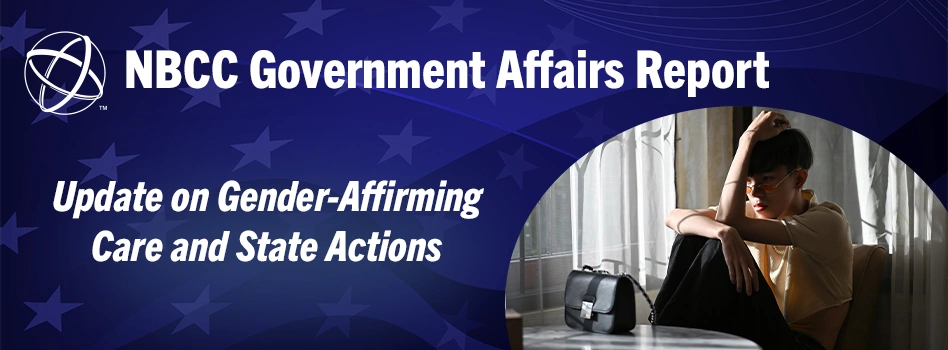- Federal Employment
- Federal Funding
- Indian Health Services
- Medicare
- Military Health Systems
- TRICARE
- Veterans Affairs
Update on Gender-Affirming Care and State Actions
- Home
- GovtAffairs
- Newsroom
- update-on-gender-affirming-care-and-state-actions
Article Published: 2/21/2024
Out of an estimated 1.6 million Americans who are transgender, about 300,000 are under the age of 18. Only a small number of transgender youth seek gender-affirming surgery, and that is usually in consultation with their family members and their primary care doctors. Mental health experts, providers, and advocates are concerned that recent state measures that prevent open dialogue about a particular identity and appropriate medical care, will lead to significant mental health problems for transgender youth, including increased risk for suicide.
Over the last 3 years, several states have taken legislative actions to block minors from seeking gender-affirming surgical or medical care. In all, 21 states passed bans or restrictions on gender-affirming care for minors between 2021 and 2023, and changes went into effect on January 1, 2024, in Louisiana and West Virginia.
The following states have passed bans: Alabama, Arizona, Arkansas, Florida, Georgia, Idaho, Indiana, Iowa, Kentucky, Mississippi, Missouri, Montana, Nebraska, North Carolina, North Dakota, Ohio, Oklahoma, South Dakota, Tennessee, Texas, and Utah.
States are taking further action already in their 2024 legislative sessions, with the South Carolina House overwhelmingly approving a ban on gender-affirming care for transgender minors on Jan. 17, while a Missouri legislative committee is discussing several proposals to further restrict care.
Restrictions on care have prompted families to travel to other states to access services. To try to counteract actions by states that restrict gender-affirming care, 14 states have passed laws protecting access to such care. In addition, federal district courts have permanently or temporarily blocked enforcement of bans on gender-affirming care in Arkansas, Alabama, Florida, Georgia, Indiana, Kentucky, Tennessee, and Montana.
It is possible that the 23 states that currently have bans or restrictions on gender-affirming care will attempt to pass other legislative or regulatory restrictions on minors this year, as well as for adults. Some actions include restricting transgender students’ participation in school athletic programs or limiting individuals’ access to public restrooms and locker rooms.
For transgender individuals seeking surgical or medical care, what comes next for their health care needs continues to depend heavily on where they live and what resources are available to them.
NBCC will be monitoring the introduction of new bills on restrictions on gender-affirming care in early 2024 and implications for practitioners.
Share On Social Media:
Read more articles »
